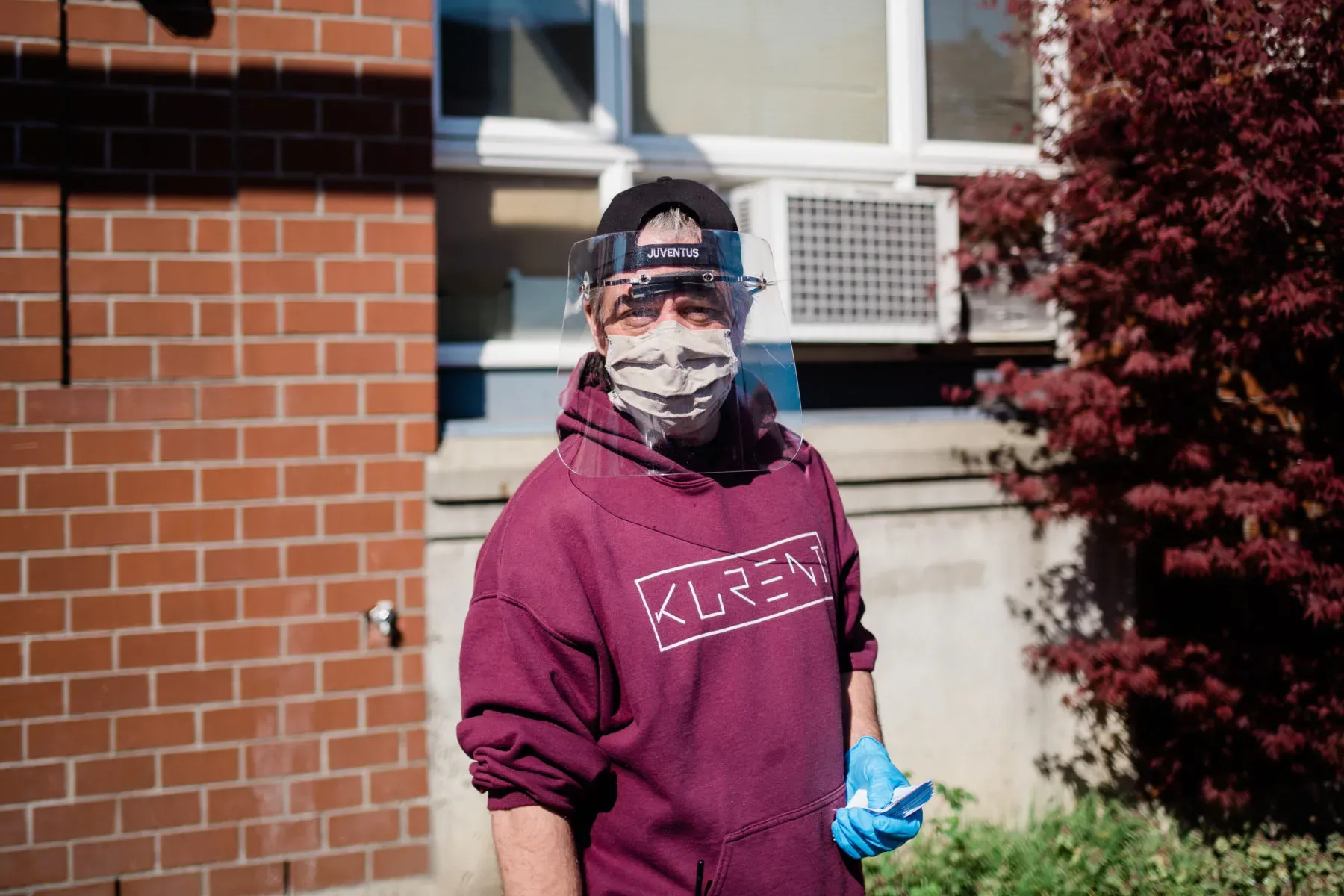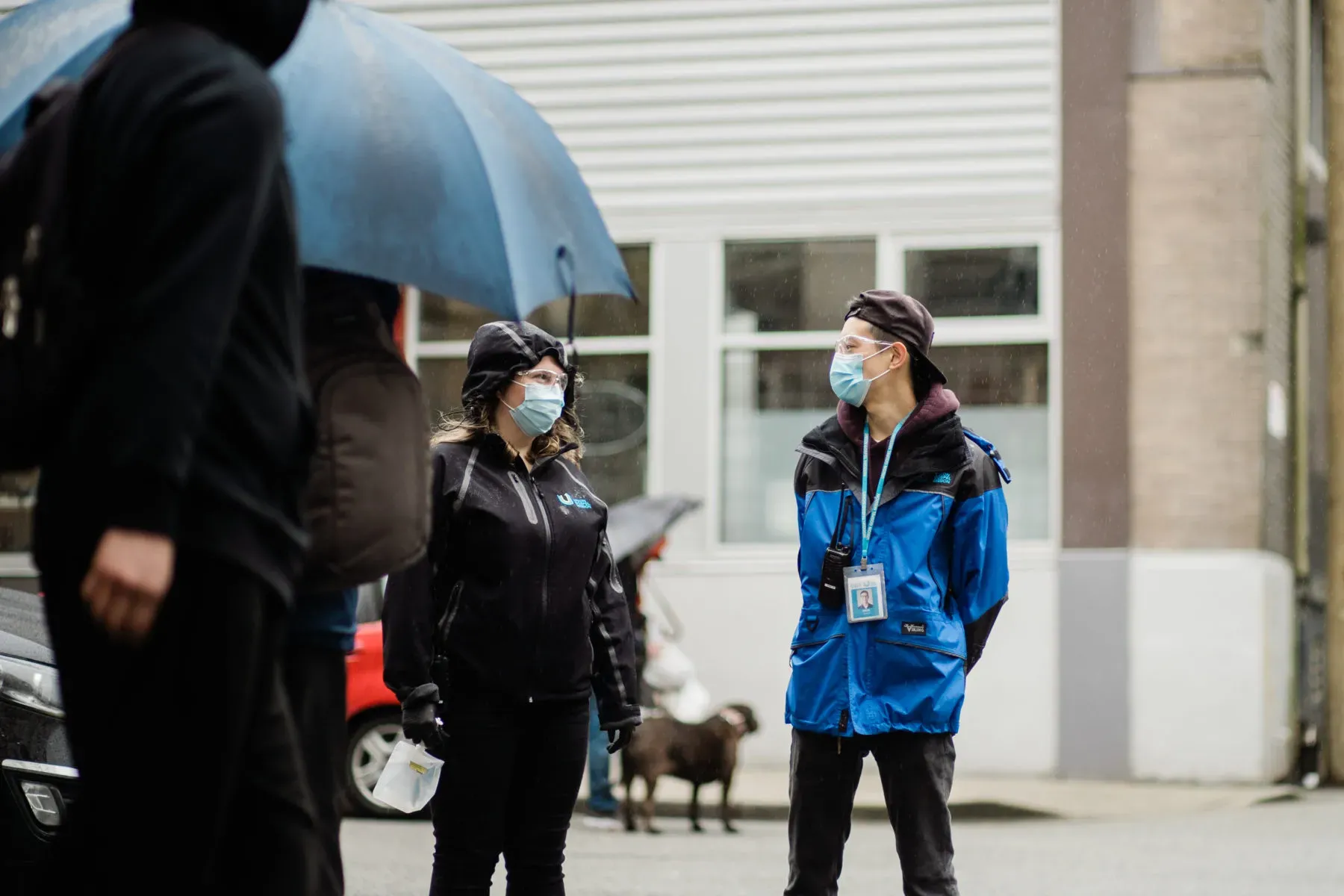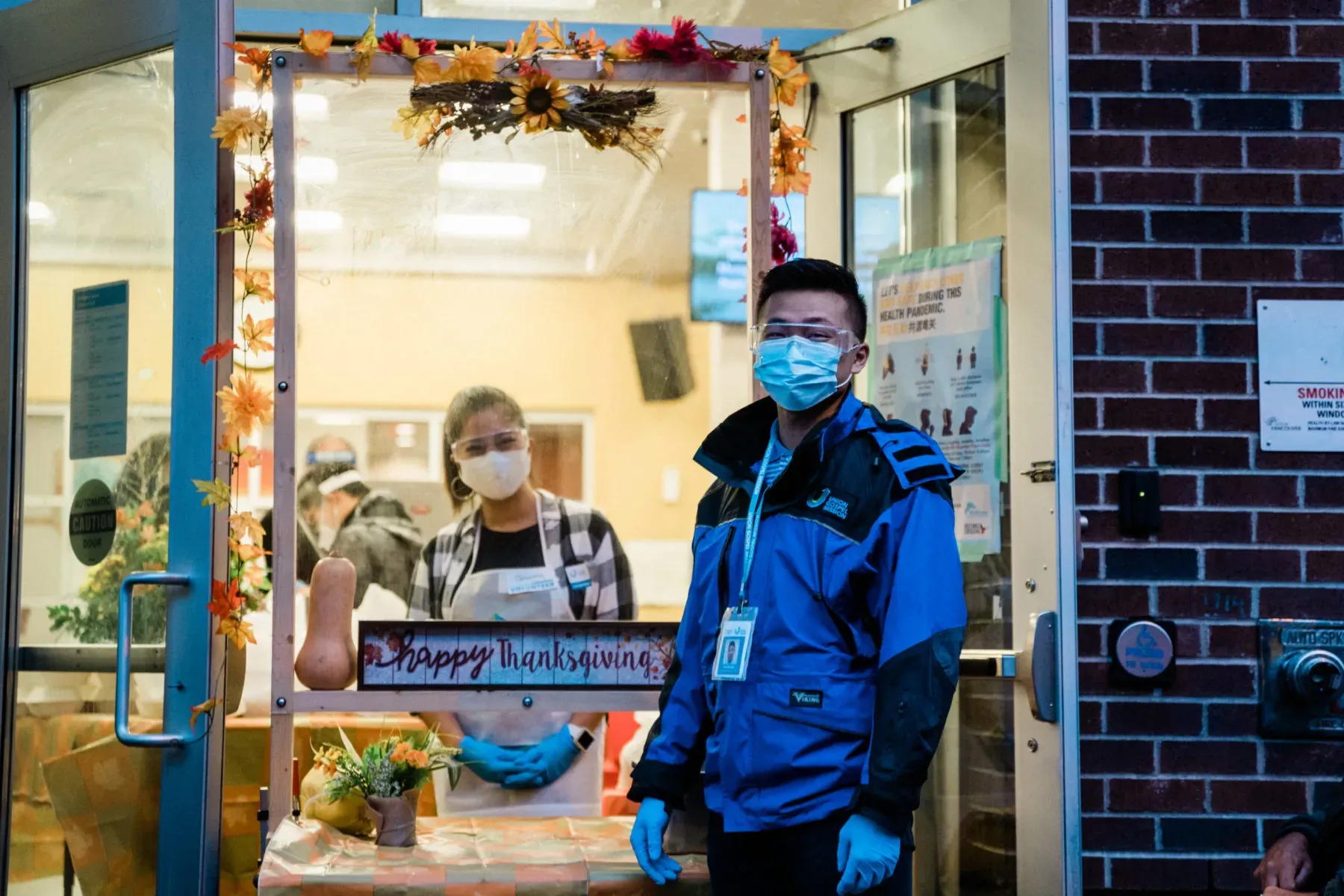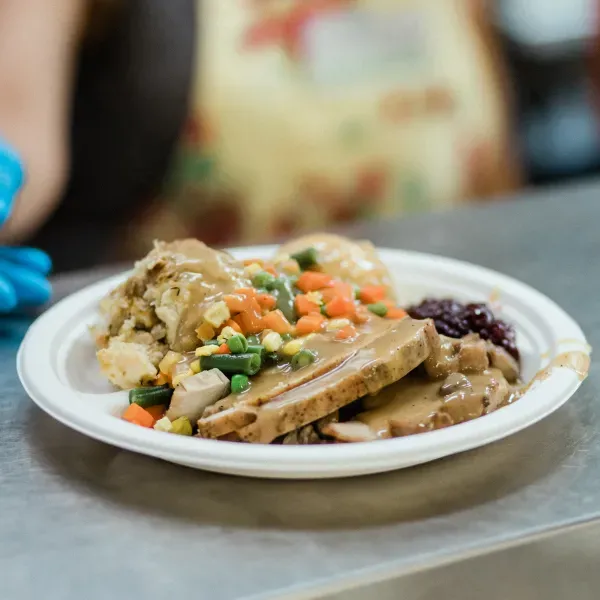CW: Overdose, Death
You’ve probably heard about the Opioid Overdose Epidemic on the news – or maybe you’ve lost a loved one to an illicit drug overdose. Maybe, it feels like you keep hearing the same things over and over – and you aren’t even sure what they really mean. Or, maybe, like so many of us – the last year has felt like one thing after another – and only now are you able to bring your attention to something besides COVID-19 or vaccination rates.
But this crisis deserves your attention and awareness. Read on to learn about the devastating effect of fentanyl in British Columbia and to hear some harrowing firsthand accounts from our frontline staff.

What are the facts?
“From a distance when we hear statistics about overdose deaths in our province, sometimes numbers don’t mean too much to us. Working in UGM’s shelter has put faces to those numbers. Among the victims of a poisoned drug supply are sons, daughters, mothers, fathers, friends, employees, and neighbours.”
— Geoff, Frontline Staff at UGM
- 2021 is on track to be the deadliest year yet of the opioid epidemic as a result of an extremely toxic drug supply, the COVID-19 epidemic and continued stigma around drug use and addiction.
- Over 20,000 people have died of an overdose in Canada, since the opioid epidemic was declared in 2016.
- The youngest person to die of an opioid overdose was only 12 years old, in 2020.
- There were 17,159 paramedic attended overdose events in 2020 compared to 13,486 in 2019. Remember – not all overdoses have paramedics attend, which means that likely many more people overdosed in 2020 in British Columbia.
- 1,724 people died in British Columbia of opioid overdoses in 2020, compared to 985 in 2019. In the first 5 months of 2021, 851 people lost their lives of a suspected illicit overdose.
- The average age of a person who loses their life to an overdose is 43, however, 50% of deaths occur between people who are aged 19-39.
- 5 or more people are dying every single day in B.C., on average, of a toxic drug overdose.

What this means and why you should care:
“Responding to an overdose is an intense experience because every second counts if someone is unresponsive and not breathing. There is definitely fear when there are signs of oxygen deprivation. At first, my hands would shake when preparing the naloxone injection. I remember the first time the 911 operator instructed us to begin chest compression and thinking ‘I don’t know if I can do this.’ As I counted off the chest compressions to the operator they had to remind me to slow down as my adrenaline was pushing me to go way too fast. In a setting like UGM, we often know the individual who is suffering drug poisoning so often we speak to them as we are responding to the overdose desperate for a good outcome.”
— Geoff, Frontline Staff at UGM
Everyone deserves dignity and everyone knows what pain feels like. If we can use empathy when considering those who are struggling with drug or alcohol addiction, the world will become a kinder, safer place.
The reality is that added barriers to safe consumption sites as a result of COVID-19 distancing rules, the increasing toxicity of drugs due to border closures during the height of the pandemic, and the continual stigma around addiction are contributing to the highest number of overdose deaths we have ever seen in British Columbia. Furthermore, we know that the loss of life isn’t just happening to those experiencing firsthand stigmatization and judgement, like drug users who are also experiencing homelessness; many of the people who are dying are those who are using indoors and alone.
Frontline workers, like Geoff, are working tirelessly and often thanklessly, to provide compassionate care, safe access to shelters and meals to those who are struggling. However, the continual losses of community members and the compounding trauma around life and death overdose events are creating increased cases of burnout and stress leave. And who can blame them? It is exhausting and relentlessly heartbreaking to watch people they know and love succumb to the toxic drugs that are ravaging the streets.
Drug and alcohol addiction is complicated – and so is recovery. There isn’t a single person on this planet who wakes up one morning and thinks, “I want to spend the rest of my one wild and beautiful life being ravaged and consumed by an all-encompassing addiction.” We know, through the stories we have heard walking alongside people who are experiencing some of the darkest moments of their lives, that the addiction they are facing is often the result of trauma, physical, emotional and/or sexual abuse, childhoods spent in the foster care system, being raised in a society that is entrenched in systemic and individual racism (like residential schools and constant race or ethnic discrimination), mental health concerns, and many other factors.
Those who are struggling with addiction deserve the opportunity to move into a life of recovery. They deserve the opportunity to quietly enjoy sunsets, or learn to code computers, or regain custody of their children. Until the overdose crisis stops killing people, dreams of recovery won’t be realized.
But you can help.

What can we do?
“The language we use matters. ‘Overdose’ can be interpreted that the individual made a mistake and took too large [of] a dose. However, the reality is [that] the drug supply is toxic resulting in people being unintentionally poisoned by substances they didn’t intend or want to ingest. Those using drugs are often doing so as a way to cope with untreated pain or trauma. They are men and women… who have value, and are often loved by family and in our community.”
— Geoff, Frontline Staff at UGM
- What we learn and how we talk about addiction matters. Destigmatizing addiction can open doors for more people to seek recovery because they will be less scared of judgement.
- Listen to UGM staff talk about the overdose crisis on The Ending Poverty Together podcast episode “Opioids, Addiction, and A Way Out”.
- Learn more about the Opioid Overdose Crisis here.
- Find an organization that is walking alongside people living with addiction, like UGM, and support them.
- Get trained to use Naloxone and carry it on you, especially if you have friends or family that use drugs – either recreationally or if they are struggling with addiction.
- Find ways to break down the stereotypes you may have when you think about addiction and drug use. Every day, moms, dads, teachers, students, funny people, brilliant people, hurting people, those struggling with long-term addiction and even those trying drugs for the first time risk losing their lives. When people feel safe, they are more likely to seek or accept offers of help from others.
Learn more about the issues impacting our community, like the fentanyl crisis and homelessness, and what you can do to help. Sign up for our email updates below.


